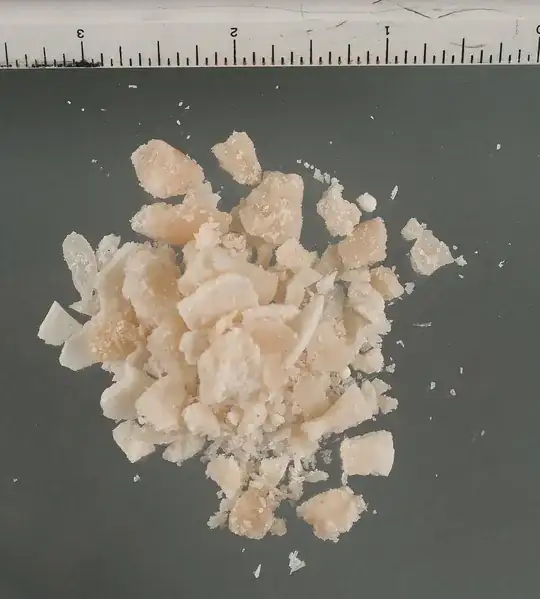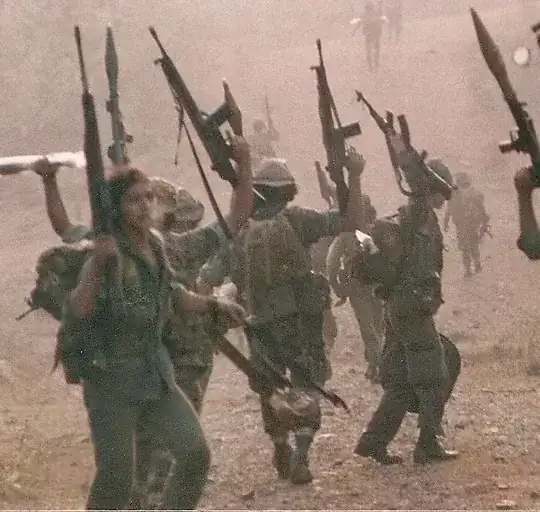Probably Not
There is no evidence to suggest that the CIA actually sold drugs in the US. There is plenty of evidence that they worked with groups that trafficked drugs like the Contras and Vietnamese elements. There is also evidence that drugs were smuggled on board planes owned by Air America, a CIA front company. But there is substantial evidence that this was done without the knowledge of the CIA or any of the Air America employees. There have been allegations that the CIA turned a blind eye towards this, but no definite evidence.
Allegations against the CIA and the Contras
There is however definitive evidence to suggest that the CIA didn't sell drugs to fund the Contras. The CIA themselves have an entire page dedicated to these allegations. Some helpful quotations include:
. . . it was an ideal situation to send drugs from [Central America] to the United States, but the Americans were too professional and had no reason to do so. Narcotics trafficking allegations were just rumors. If there was narcotics trafficking, it was probably from Nicaragua to the United States conducted by the Medellin cartel. - An anonymous American contractor
The rumors that Mario Calero[Brother of a Contra Leader] may have been involved with drug trafficking while running an [aircraft] from Louisiana were not believed to be true and no credible reporting on any such activity was ever received. - An Army officer
A Station operations officer recalls that CIA personnel serving in the country "clearly understood we were to have nothing to do with anyone involved in narcotics trafficking and to my knowledge no one ever did." He says that any drug trafficking information would have been handled in regular intelligence reporting channels. He says he recalls no management resistance at all to processing any reporting on drug trafficking and adds, "If someone attempted to hide such information, I would report them."
A Central American COS states that "narcotics was not something [Station personnel] were looking for in the 1980s, but that does not mean they would have ignored it if they had seen it." He says that his understanding of crimes reporting obligations since 1980 was that anything that looked to be criminal in nature should be reported to Headquarters.
The COS says he became aware of drug trafficking allegations against the Contras "fairly early" during his assignment. He says there was a group of "ne'er-do-well" people surrounding Eden Pastora who had histories that included criminal activity. He continues that "there was a range of derogatory information that may have included narcotics activities. Early traces revealed these folks should be treated carefully. Some were scoundrels." He indicates that the Headquarters reaction to derogatory information concerning Pastora's associates has to be considered in the context of DCI William Casey's overriding political objectives. As the COS explains:
. . . yes, there is derogatory stuff and we would be careful in terms of counterintelligence and operational security, but we were going to play with these guys. That was made clear by Casey and [then-LA Division Chief Duane] Clarridge.
Findings by the Senate Committee that investigated drug trafficking in relation to the Contras, only found evidence that the Contras received money from drug traffickers, and that the State Department sent money to companies that were later found to have been involved in drug smuggling. There is no proof that the CIA was dealing drugs in America, and a fair amount of info to the contrary, for example, this exchange between Senator Kerry and someone who took money from a drug trafficker to help the Contras,
Senator KERRY. Did you have occasion to say to someone in the CIA that you were getting money from him and you were concerned he was a drug dealer? Did you pass that information on to somebody?
Mr. CESAR. Yes, I passed the information on about the--not the relations--well, it was the relations and the airplanes; yes. And the CIA people at the American military attache's office that were [sic] based at Ilopango also, and any person or any plane landed there, they had to go----
Senator KERRY. And they basically said to you that it was all right as long as you don't deal in the powder; is that correct? Is that a fair quote?
Mr. CESAR. Yes
The conclusion of the Senate Committee was the following:
The Subcommittee found that the Contra drug links included:
--Involvement in narcotics trafficking by individuals associated with the Contra movement.
--Participation of narcotics traffickers in Contra supply operations through business relationships with Contra organizations.
--Provision of assistance to the Contras by narcotics traffickers, including cash, weapons, planes, pilots, air supply services and other materials, on a voluntary basis by the traffickers.
--Payments to drug traffickers by the U.S. State Department of funds authorized by the Congress for humanitarian assistance to the Contras, in some cases after the traffickers had been indicted by federal law enforcement agencies on drug charges, in others while traffickers were under active investigation by these same agencies.
From this report by the Senate, there is no evidence to suggest the CIA trafficked or sold drugs in the United States. There is some evidence that the US government gave money to organizations that they knew might be involved in illicit activists.
Other Allegations
The CIA has also been accused of drug trafficking in Panama, Laos, and Venezuela. The involvement of Laos has already been discussed above, but Panama and Venezuela are unique cases which must be discussed.
In Panama, the CIA turned a blind eye towards the drug smuggling of Manuel Noriega, the leader of Panama, because of his support of the Contras from the 1960s, until the US invaded Panama in 1989 and deposed him. Another time the CIA may have turned a blind towards drug smuggling by allies.
In Venezuela, the CIA let a significant amount of cocaine into the US to try and assist an agent who was trying to gain the confidence of the Cartel. The cocaine accidentally made its way onto the streets, and the officer in charge resigned. This is perhaps the closest the CIA has gotten to selling drugs in the US, however it was an accident and the CIA didn’t directly or intentionally sell any drugs in the US.

